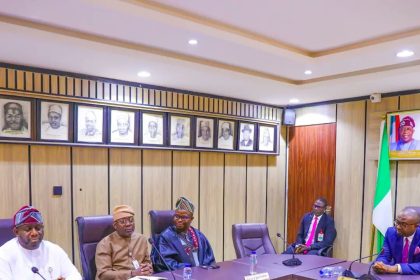Growth in the number of scholarships that Russia is offering to African students reveals the “soft power” being used by Moscow, experts said.
Russian president Vladimir Putin recently said that there were more than 35,000 African students in his country, with 6,000 of them on scholarships bankrolled by the Kremlin.
Tracey German, professor in conflict and security at King’s College London, said there had been a fourfold increase in the number of scholarships over the past decade, in an echo of Cold War tactics when the Soviet Union would train a country’s next generation of leaders to ensure friendly relations and win “hearts and minds”.
“I do think this is about soft power and influence and looking for countries and areas where Russia can influence and shape and potentially displace Western states,” Professor German said.
Ivan Klyszcz, a research fellow at the International Centre for Defence and Security, said Russia had for some time “regarded scholarships for higher education programmes as a cost-effective way to build influence across the globe”.
“The prestige of Russian universities and the legacies of Soviet technical and educational assistance abroad continue to attract students.
“The effect is stronger where there was intensive cooperation on these matters with the Soviet Union,” he said.
“Even though a few of the most prestigious universities of the Soviet Union are today outside of the Russian Federation, Russia has actively attempted to capitalise on this Soviet legacy for itself.”
Moscow recently announced that the name of the People’s Friendship University of Russia (RUDN) in Moscow would revert back to the Patrice Lumumba Peoples’ Friendship University, re-honouring the Congolese politician 30 years after his name was taken off the public research institution.
Dr Klyszcz, an expert on Russia-Africa relations, said this reflects the decision by Russia’s leadership to adopt an anti-colonial rhetoric in its foreign policy, especially towards the Global South.
“This rhetoric still carries weight and echoes themes made popular during the Cold War. Like the scholarships, this is a Soviet legacy the Kremlin wants to capitalise on,” he said.
Unlike other scholarships – such as the UK’s Chevening programme or the Fulbright scheme in the US – international students can only apply for funded spots at certain programmes selected by the Russian government.
With Russia offering 15,000 spots in 2020, Dr Klyszcz said the scale is much bigger than those in rival countries – with Chevening offering fewer than 2,000 scholarships to foreign students per year, and Fulbright just 4,000.
“There is an overtly transactional element to the allocation of spots per country,” he added. “The ‘better’ the relations between the two countries – in the view of the Russian authorities – the more spots are assigned to students from that country.”
Professor German said the higher education element is just one part of Moscow’s re-engagement with Africa – following a “vacuum” created by the drawdown of US forces and the withdrawal of French troops.
“The Global South more broadly Russia sees – particularly post-invasion [of Ukraine] – as an area where it is able to garner some influence and we have seen it over the last few years really trying to capitalise on what it saw as increasing Western disinterest and disengagement.
“What we’ve seen is this narrative as Russia positioning itself as an anti-imperialist, anti-colonial power,” said Professor German. “It helps Russia in what it sees as a contestation with the West and it’s all part of that.”
patrick.jack@timeshighereducation.com






